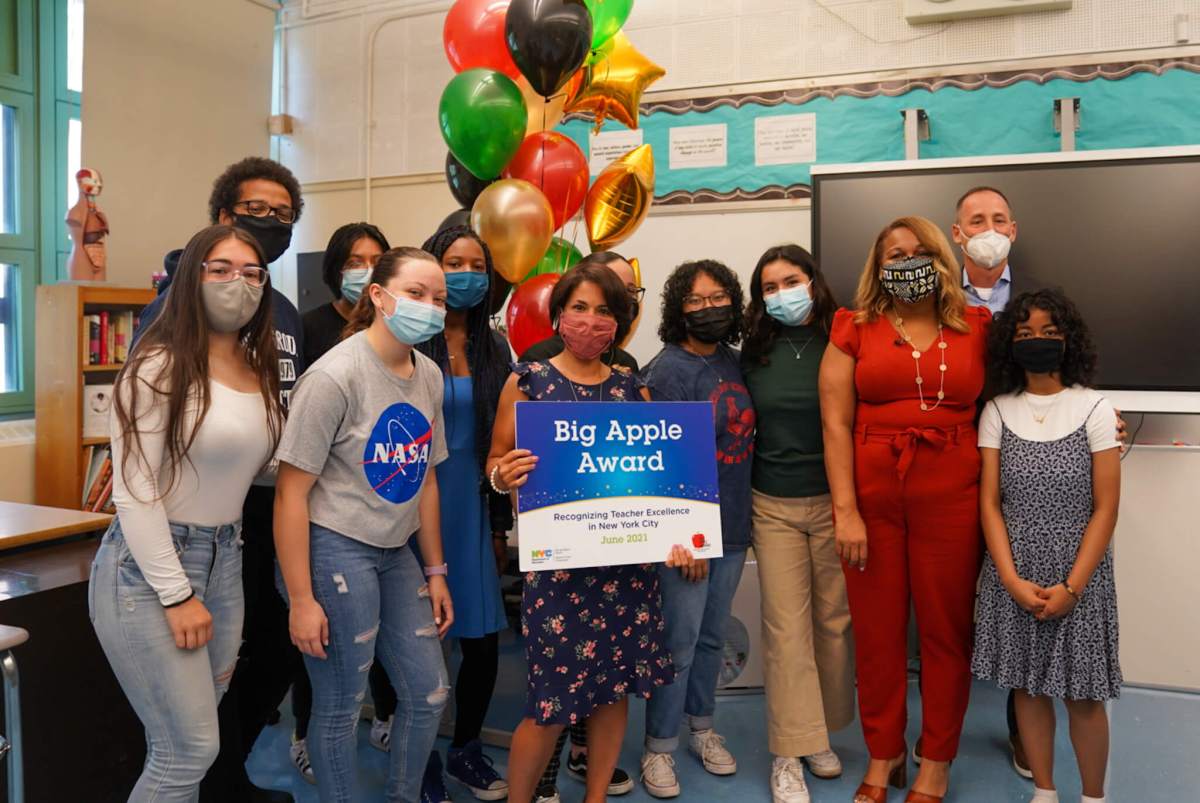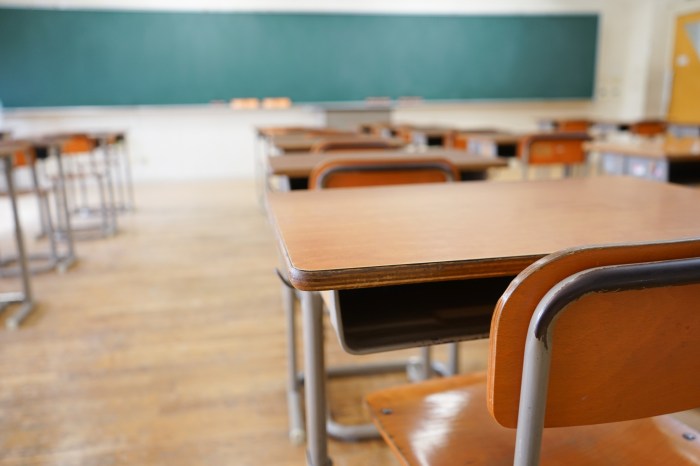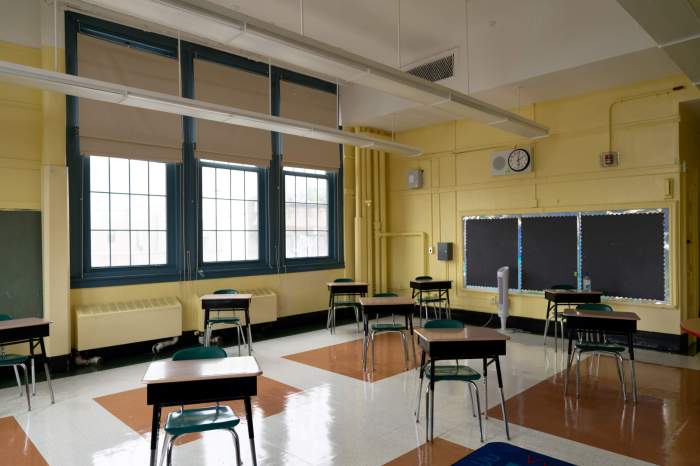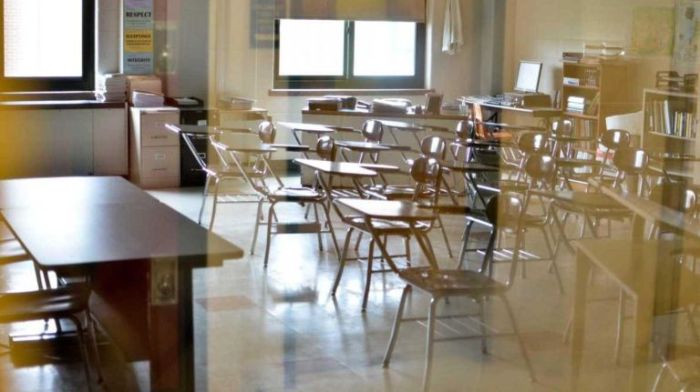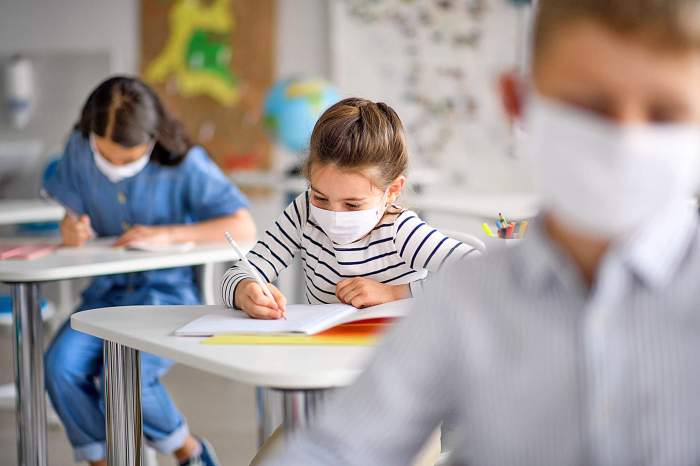An East Harlem high school teacher who tended to her students’ mental health throughout the pandemic while tackling tough topics like the Jan. 6 attack on the Capitol and a wave of Black Lives Matter protests was given a “Big Apple” Award Tuesday by Schools Chancellor Meisha Ross Porter.
Ivelisse Ramos Brannon, an English Language Arts and Advanced Placement Language and Composition teacher at Central Park East High School, is one of 20 teachers receiving the award this year which celebrates educators who have gone above and beyond in teaching, inspiring students, or leading their school community.
“Out of all the amazing teaches in our state, she was selected because of her amazing teaching process, the way she’s engaged in her school,” said Porter who surprised Ramos Brannon during a morning class to hand-deliver the award. This year, over 6,000 educators were nominated for the prestigious award with winners selected from a panel of superintendents, former “Big Apple” winners, union representatives and Department of Education staff. Porter is only personally delivering the award to five educators, one per borough, and the remaining winners will be announced over the next two weeks, according to a DOE spokesperson.
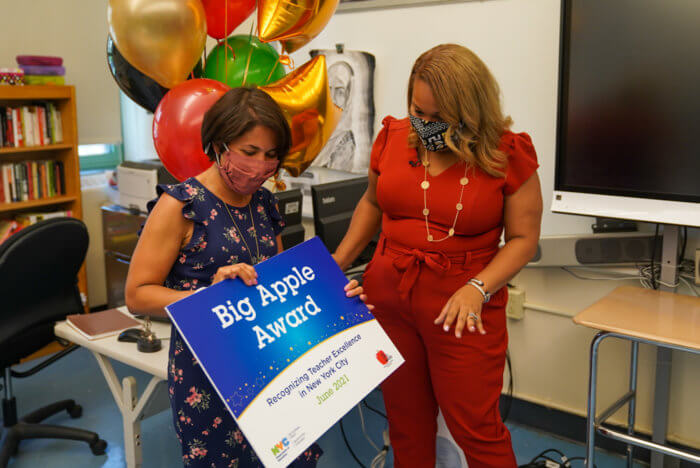
The award takes on a new level of prestige this year given the challenges public school teachers and students have faced over the last 15 months amid the ongoing pandemic. When schools suddenly had to shift to remote learning last spring, Ramos Brannon led the Central Park East High School’s transition to remote and blended learning and supported the school community “going live” shortly after Mayor Bill de Blasio ordered the first system-wide shut down of public schools. In addition, Ramos made it her mission to ensure her students thrived academically and emotionally by routinely coupling instruction with mental health check-ins with her students during class time.
“Check-ins could be something like a warm-up activity like the kids telling me how they are feeling, or I would have them write a little narrative or I would call them into my virtual office hours,” Ramos Brannon told amNewYork Metro. If a student seemed off or said they were struggling in any way, Ramos Brannon followed up with “many, many” phone calls, emails and surveys on Google Meet.
But the most powerful way Ramos Brannon would care for her students’ emotional wellbeing was not shying away from talking about complicated issues that came up during a very complicated year and a half. “If we ever needed a time to talk about what was happening in the world, what was happening at home, we had that,” said Anahi Ramos, 16, one of Ramos Brannon’s 11th-grade students. Ramos Brannon would frequently spend full class periods talking through some of the painful events that have taken place over the last 15 months, the murder of George Floyd, violence against protesters, and the spike of violent attacks against Asian Americans.
The day after the attack on the U.S. Capitol earlier this year, when supporters of former President Donald Trump stormed the iconic building in an attempt to overturn the Nov. 3 presidential election results, Ramos Brannon decided the day would be devoted to students talking about how they felt and analyzing the police’s response to the attack versus its response to protesters during the George Floyd protesters.
“The students are reacting to what is happening outside, what is happening in the world, they are reacting to oppression and resistance. So, you can’t ignore those things,” said Ramos Brannon. “I have to give them a space for them to talk about it in class because for some of them it’s traumatic…I couldn’t ignore that trauma.”



